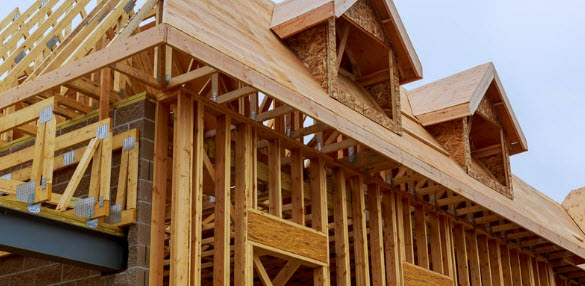A Mortgage Cash Out Refinance allows homeowners to tap into their property’s equity and receive cash that can be used for major expenses, debt consolidation, or investments. If you’ve built up equity in your home and are looking to unlock its potential, this type of refinance could be a strategic financial move. Let’s explore how cash out refinance mortgage rates work and the advantages of choosing this route.
What is a Cash Out Refinance?
A cash out refinance replaces your existing mortgage with a new, larger loan. The difference between your new mortgage amount and what you owe on your home is paid out to you in cash. This method of refinancing provides access to funds that can be used for any purpose, from home improvements to paying off high-interest debt.
For instance, if your home is valued at $400,000 and you owe $250,000, a Mortgage Cash Out Refinance could allow you to refinance for $320,000. After paying off the original mortgage, you would receive $70,000 in cash.
Benefits of a Cash Out Refinance
1. Lower Interest Rates Compared to Personal Loans
When compared to personal loans or credit cards, cash out refinance mortgage rates are typically lower because they are secured by your home. This allows you to borrow a significant amount of money at more favorable rates.
2. Consolidate High-Interest Debt
If you have high-interest debt, such as credit cards, a Mortgage Cash Out Refinance can help consolidate it into one lower-interest payment. By leveraging your home’s equity, you can save money on interest and simplify your financial obligations.
3. Fund Major Expenses
A cash out refinance can be used for a variety of financial needs, such as home renovations, college tuition, or investing in a business. These projects can add value to your home or improve your financial situation over time.
4. Potential Tax Benefits
In some cases, the interest paid on a Mortgage Cash Out Refinance may be tax-deductible if the funds are used for home improvements. Consult with a tax advisor to understand the potential tax advantages.
Explore a cash out refinance using your Home Wealth Blueprint, crafted with real-time property data from HomeLoanAdvisor. Get personalized mortgage options and home wealth strategies that align with your financial profile.
Risks of a Cash Out Refinance
1. Increased Mortgage Debt
By taking out a larger mortgage, you are increasing your total debt. This could extend your loan term and mean higher payments if interest rates increase. Be sure to calculate whether the cash out benefits outweigh the additional mortgage burden.
2. Risk of Foreclosure
Since a cash out refinance increases your mortgage balance, failing to make timely payments could put your home at risk of foreclosure. It’s essential to evaluate your financial situation and make sure you can handle the new mortgage terms before proceeding.
3. Closing Costs
Just like a regular refinance, a Mortgage Cash Out Refinance comes with closing costs, which typically range from 2% to 5% of the new loan amount. Make sure to account for these costs when calculating how much cash you’ll actually receive.
Cash Out Refinance Mortgage Rates: What to Expect
Interest rates for a Mortgage Cash Out Refinance are usually slightly higher than traditional refinance rates, because lenders view cashing out equity as a higher risk. However, the difference in rates can still make a cash out refinance more affordable than other forms of borrowing.
Here’s a look at the typical cash out refinance mortgage rates based on different credit score ranges:
Credit Score Range | Average Rate |
740 and above | 5.0% – 5.5% |
680 – 739 | 5.6% – 6.2% |
620 – 679 | 6.3% – 7.0% |
Below 620 | 7.1% and above |
As with any mortgage, your credit score, loan-to-value ratio, and market conditions will affect the final interest rate offered by your lender.
How to Qualify for a Cash Out Refinance
Lenders require that you meet specific criteria to qualify for a Mortgage Cash Out Refinance:
- Minimum Credit Score: Typically, you need a credit score of at least 620, though higher scores qualify you for better cash out refinance mortgage rates.
- Sufficient Home Equity: You must have enough equity in your home—usually at least 20%—to qualify for a cash out refinance.
- Stable Income and Employment: Lenders will check your debt-to-income ratio (DTI) to ensure you can handle the new mortgage payments.
Frequently Asked Questions
- How much equity do I need for a cash out refinance?
Most lenders require at least 20% equity in your home to qualify for a cash out refinance. - What are typical cash out refinance mortgage rates?
Rates for a Mortgage Cash Out Refinance tend to be slightly higher than traditional refinances, ranging from 5% to 7% depending on your credit score and market conditions. - Can I refinance if I have bad credit?
Yes, but your cash out refinance mortgage rates will be higher if you have a lower credit score. Improving your credit score before applying can help. - What are the closing costs for a cash out refinance?
Closing costs typically range from 2% to 5% of the loan amount. These costs may be added to your new mortgage, reducing the amount of cash you receive. - Can I use the cash for anything?
Yes, you can use the cash from a refinance for any purpose, such as home improvements, debt consolidation, or paying for college. - How long does a cash out refinance take?
The process generally takes 30 to 45 days, similar to a standard mortgage refinance. - Will a cash out refinance affect my taxes?
The interest paid on a Mortgage Cash Out Refinance may be tax-deductible if used for home improvements. Check with a tax advisor for your specific situation. - Can I refinance more than once?
Yes, as long as you meet lender qualifications, you can do multiple refinances, but be mindful of closing costs and interest rate changes. - What is the maximum loan-to-value (LTV) ratio for a cash out refinance?
Lenders typically allow you to borrow up to 80% of your home’s value.
Are there alternatives to a cash out refinance?
Alternatives include home equity loans and home equity lines of credit (HELOCs), which allow you to borrow against your home without refinancing your entire mortgage.
Conclusion
A Mortgage Cash Out Refinance can be a powerful financial tool to leverage the equity in your home. Whether you’re looking to consolidate debt, fund major expenses, or simply take advantage of favorable cash out refinance mortgage rates, this refinancing option provides flexibility and access to large sums of money. Always assess your financial situation, compare lenders, get your free Home Wealth Blueprint and ensure you’re getting the best terms before moving forward.



